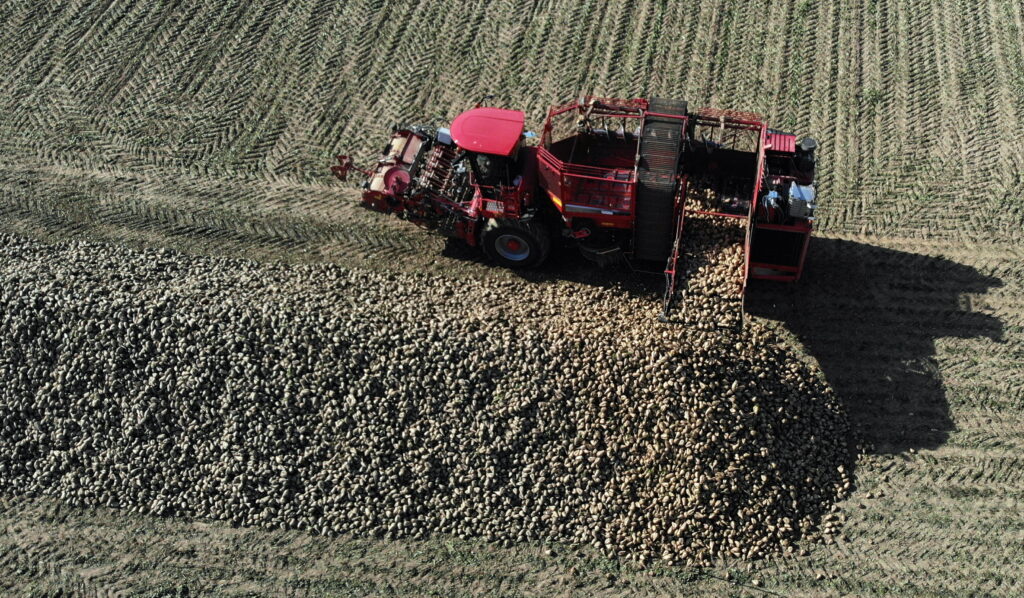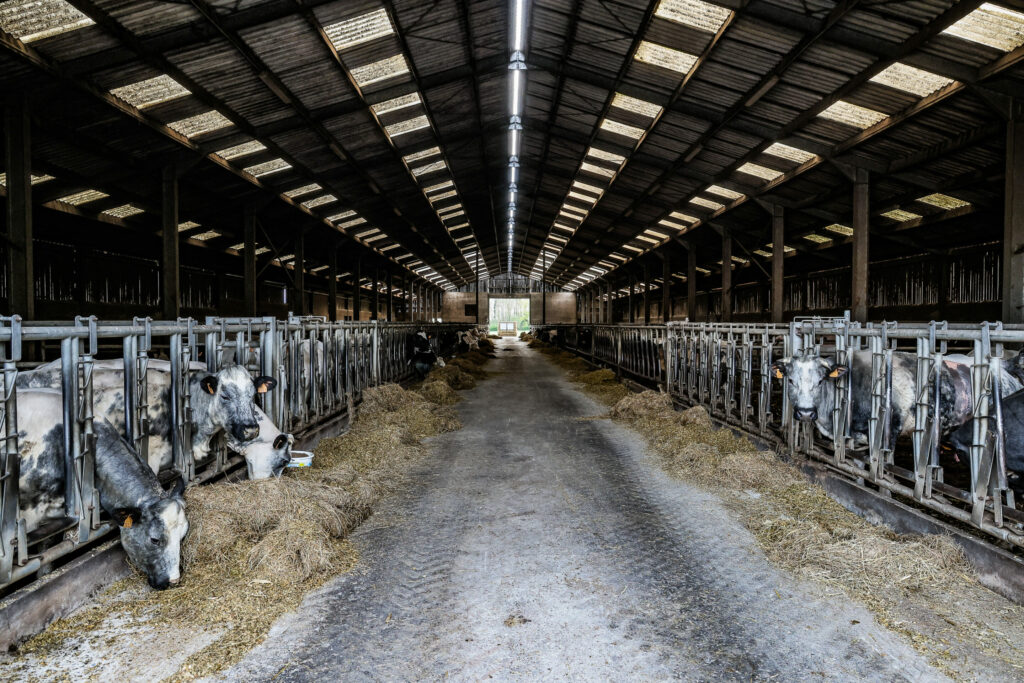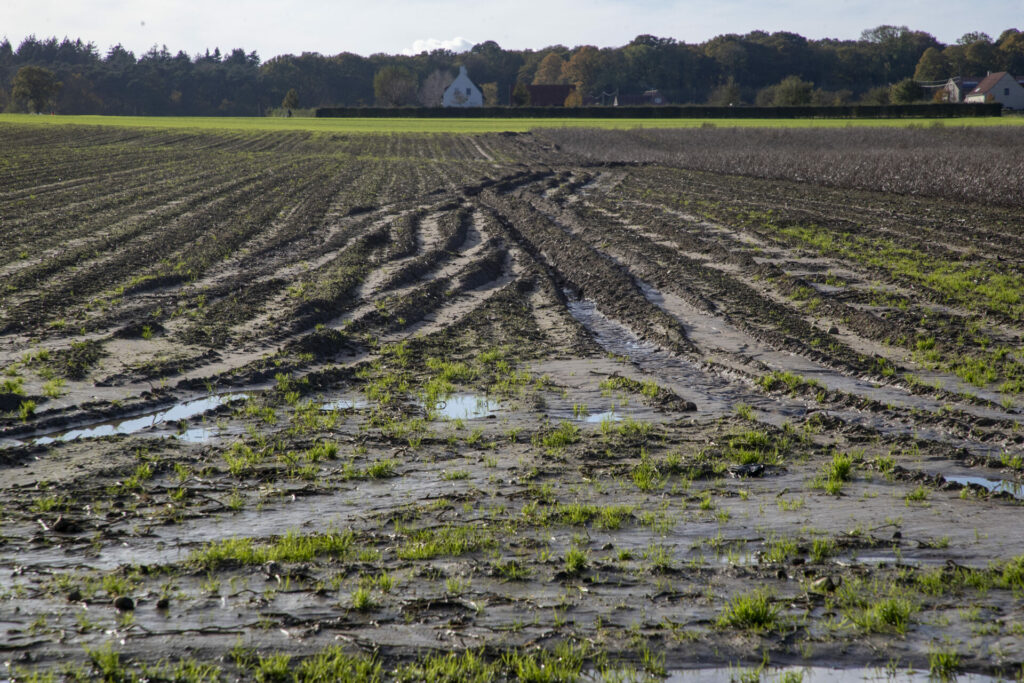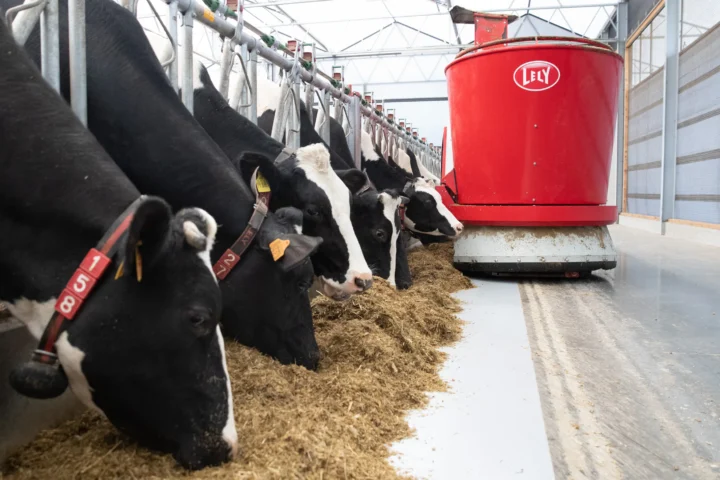A few days before the end of May it was already confirmed by the Royal Meteorological Institute of Belgium (IRM) that the past six months were the wettest Belgium has seen since records began in 1877, with close to 600 millimetres of rain falling between winter of last year and this spring.
It’s the latest in a string of record-setting weather conditions, as the realities of climate change set in in Belgium and around the world.
Last winter was the second warmest on record in Belgium, averaging 6.1°C. It was also the third wettest, with 310.7 millimetres of rainfall. 2023 was the third warmest year ever recorded (averaging 12.1°C, just behind 2020 and 2022); it was the fourth wettest with 1011.4 mm of precipitation.
Belgium’s fertile soil and generally mild weather makes it suited to a wide variety of farming, from crops like beet, potatoes, wheat and corn, to livestock like cows and pigs.
However, as farmers across Belgium are struggling with sodden fields, this year’s harvest will inevitably be impacted, likely bringing price increases – especially for sugar, beer and french fries.

King Philippe of Belgium visiting a flooded in West Flanders, November 2023. The river Yser reached bursting point at several sites in the Westhoek region after days of heavy rain. Credit: Belga
“Everything postponed” due to wet soil
Boerenbond is the largest farmers association across Flanders and East Belgium, with its 16,000 members representing around three-quarters of all Flemish farmers.
The record wet weather has forced farmers to delay planting crops, which could have an impact on food prices after the summer, the organisation’s spokesperson Elisabeth Mertens told The Brussels Times.
“Because the soil is so wet farmers have to wait to plant their seeds, so it means that everything is postponed. It also means that anything that went into the ground might not have enough growing days, so they might not get big enough,” she said.
Mertens explained that the bad weather could have an impact on food prices later in the year, and some foods might not be available. “For some vegetables there will probably be less supply, and it could also mean that the prices will go up because there will be scarcity. It all depends on how well the season will be in the summer.”
Beet and sugar shortages
Beet farmers in particular have struggled with unusually wet weather conditions both this year and last year. As beetroot is usually grown early in the season, a lot less was planted than foreseen this year, while a wet end to the growing season last year meant that a lot of beets couldn’t be harvested, and were left to rot in the ground.
“If beets can’t be imported from elsewhere and if the whole European market had difficulties, that could mean that there will be less beet. And as beet is mostly important for making sugar, it could affect the price of sugar,” Mertens explained.
Delaying or abandoning the planting of crops can have serious consequences for farmers, who lose out on income and can face fines for breaching supply contracts with factories.
However a fine summer could help to turn things around, as farmers hope that the weather will improve from next week: “They [farmers] have been looking at the weather forecast every day for weeks. It seems like as of next week it will get better. If from now the weather is okay, then it won’t be a total disaster. It’s not going to be a good season, that’s for sure, but it all depends on the weeks to come and what the weather will be like.”

Beetroots in abundance? Perhaps not unless conditions improve very soon. Credit: Belga / Eric Lalmand
Cattle stuck inside
Benoît Thomassen works for the analytics department of the Walloon Federation of Agriculture (FWA), the largest farming association in Wallonia that represents around a third of the region’s farmers. He said that the wet weather has wreaked havoc for both cattle and crop farmers.
Usually by this time of year, cattle farmers have let their herds out into the fields after being kept indoors all winter. However, as the ground is still too wet and cows remain cooped up in sheds and have to be fed with dried hay stock.
“You see the cows, it’s spring and they really want to go out, so this is not good for animal welfare. And as they have to stay inside the buildings we have to feed them. Farmers have to take stocks for next winter or from last year if there is any remaining,” said Thomassen.
He added that farmers are not able to replenish their hay stocks as the ground is too wet to cut the spring grass. In a good year farmers could have cut their grass two or three times by this time of year but in some areas farmers have not even made the first cut.

Warm and dry or itching to get out? Many cows in Belgium remain in sheds due to waterlogged fields. Credit: Belga
Thomassen said that among Walloon farmers, potato growers face some of the most difficult conditions. Potatoes are grown from smaller potatoes rather than seeds, but after months of rain the soil is too wet to plant the potatoes without them rotting. As time goes on the potatoes kept in dry storage since last year are starting to rot too.
“At this time, not even half of the potatoes are in the fields, which is really uncommon. At this time in a normal year it’s already done everywhere. This is a big problem; we expect to face some significant decreases in potato yields around October.”
Price rises for beer and french fries
In terms of what this means for consumers, Thomassen said that there would likely be little impact on the price of a potato in the supermarket but weak harvest yields could have a knock-on impact on the price of potato products like french fries.
“Most of the potatoes we grow in Belgium are big potatoes not for direct human consumption. They’re for industry and we are still using the stock from last year so it’s not a big problem this time. But I think from next year in Belgium the price of french fries could rise.”
The analyst predicts that the same could be true for other products made from raw ingredients that may have a poor harvest yield this year, such as wheat used to make beer. “The beer price might go up, the price of wheat is slowly going up, so it will have some influence on the price of the final product.”








